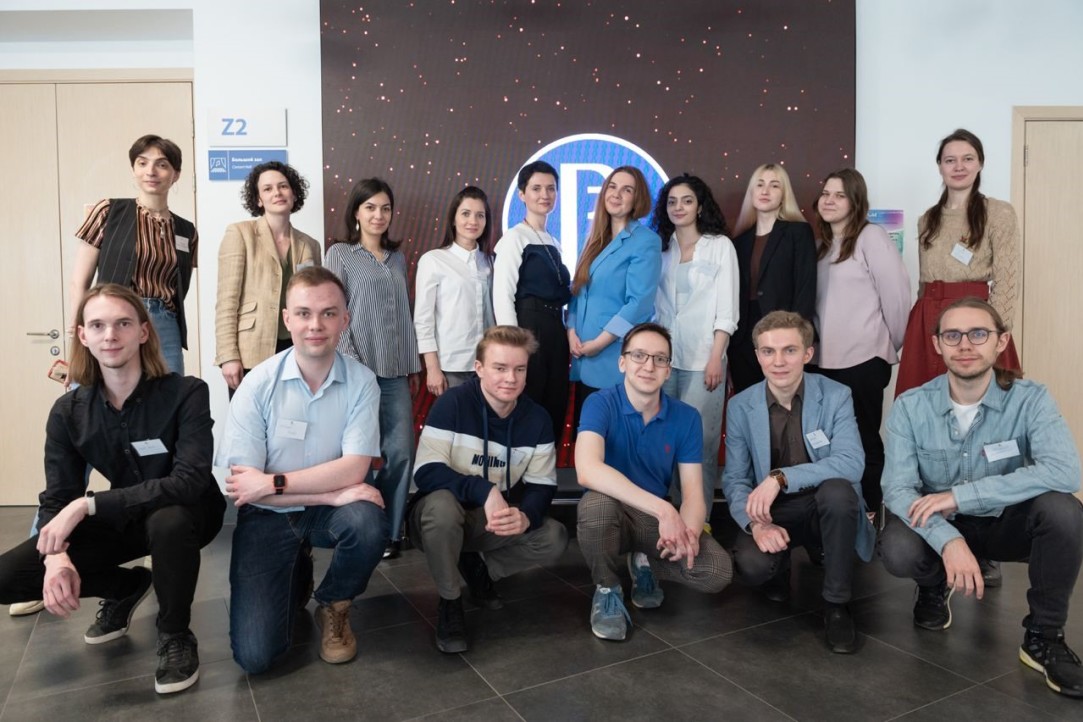‘Students Play a Vital Role in the Development of University Research’

HSE University provides students with opportunities for academic development from the undergraduate level onwards. Now that another open enrolment session for research assistant positions has recently come to an end, more than 250 young researchers are starting their careers and combining work and study at the university.
At the end of April, the HSE Centre for Scholarly Integration and the HSE Centre for Student Academic Development held the Research Environment workshop to give new colleagues an opportunity to immerse themselves in the university research community. In May and June, the workshop will continue with a series of adaptation educational events to develop research skills.
One of the workshop’s most important objectives was to help the research assistants learn about HSE University’s academic life and find their feet there. It is also important for students to decide how to structure their future research track, combining it with their university studies.
‘Students play a vital role in the development of university research. The job of a research assistant is just the first step on that steep learning curve known as an “academic career”. Therefore, it is very important to help colleagues adapt and find themselves in the world of research,’ says Yulia Falkovich, Director of the Centre for Scholarly Integration.
In today's academic world, a successful start requires joining a community of like-minded people who can help at any stage of the career path. Creating a space in which diverse researchers interact on an equal footing is one of the most important foundations for scholarly communication and academic partnership. This was discussed by Vice Rector Maria Yudkevich and Ivan Gruzdev, Director of Internal Monitoring and Student Academic Development.
Young scholars need to decide on a system of academic dimensions. Is it worth diving into project activities? How important is it to network with fellow scholars within the university, between different universities, and with foreign colleagues? To answer these questions, students took part in a networking session called ‘The Academic Balance Wheel’. This game helps them plan their own research projects and determine a system of scientific values that will allow them to move forward on the academic track. Elena Kobzar, Head of the HSE Office of Doctoral Studies, highlighted the importance of this in her lecture.

Andrey Kozhanov, Director of the Centre for Student Academic Development, noted that ‘direct dialogue with research assistants is important to get feedback and build an effective and useful system of support tools.’
‘Research Environment’ is more than a one-off series of lectures and workshops for improving soft skills and raising academic awareness. The event could become annual, reproducing the university academic environment and creating a unique platform for scientific communication and interaction between students and researchers.
Olga Okhotnikova, Research Assistant, Poletayev Institute for Theoretical and Historical Studies in the Humanities, second-year student of History of the Modern World
The speakers started the session by introducing the audience to the existing HSE programmes aimed at supporting the university’s research projects. I didn’t know about some of these programmes before. The most helpful part was working in groups. We had a dialogue with moderators to discuss ideas and plans of each of the participants. It was particularly interesting to network with people from other disciplinary backgrounds who, just like me, seek to develop their academic careers. The different perspectives and research backgrounds of both the moderators and the research assistants helped each of the participants look at their research areas from a different perspective, learn about opportunities to advance their new projects, and outline practical steps to implement them.
Larisa Marchuk, Research Assistant at the International Laboratory of Positive Psychology of Personality and Motivation, first-year doctoral student
For me, the most helpful part of the main event was the list of literary works about academia provided by Vice-Rector Maria Yudkevich. She said that although one may think that research assistants are at the bottom of the scientific food chain, they are fully involved in ‘adult’ research thanks to the culture and values of HSE University.
Grigoriy Bukley, Research Assistant at the Laboratory of Complex Systems Modeling and Control, third-year bachelor student in Applied Mathematics and Computer Science
I have been thinking about an academic career for a long time. The Scientific Environment workshop helped me consider the pros and cons and learn about the prospects and pitfalls of my decision. I was particularly excited about the chance to talk with young researchers who went down this path themselves not long ago and to plan my own career. Now I feel much more confident in my decision and I know how to move forward.
Alexey Smirnov, Research Assistant at the International Laboratory of Intangible-driven Economy, second-year student in Economics (Perm HSE)
The opportunity to talk to senior colleagues and research experts was particularly helpful to me as a second-year student. We discussed the difficulties and doubts one may face on the academic track and how to address them. Thanks to the workshop, I was able to better understand my own research interests and what steps I should take next to move my research career forward. I would like to thank my laboratory for the opportunity to come to the workshop from the Perm campus.
Grigoriy Bukley
Olga Okhotnikova
Maria M. Yudkevich
